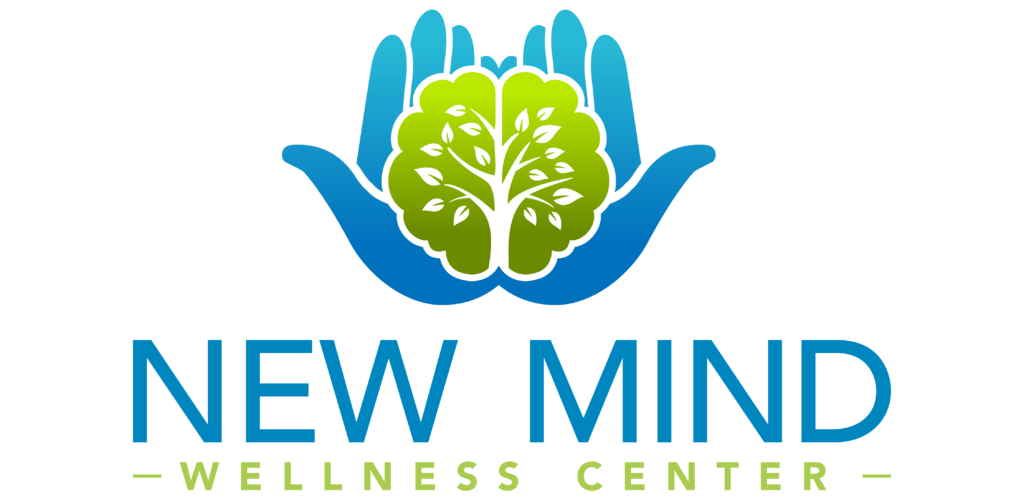Home » Mental Health Treatment in Philadelphia
Mental Health Treatment in Philadelphia

Home » Mental Health Treatment in Philadelphia
Mental Health Treatment in Philadelphia
Our partial hospitalization program in Philadelphia can help you continue mental health treatment after residential care.
Call us today or visit our admissions page to get started.

In a world where stigma often surrounds mental health issues, New Mind Wellness is dedicated to breaking down barriers and fostering a culture of acceptance and understanding through treating various mental health disorders. We believe that seeking help for mental health challenges is a sign of strength, not weakness. Our supportive mental health treatment programs in Philadelphia encourage open dialogue and empowers individuals to embrace their journey towards healing without fear or shame.
If you or a loved one need mental health treatment, contact us today to learn more about our programs in the Philadelphia area.
- What Is Mental Illness?
- Do I Need Mental Health Treatment?
- Mental Health Disorders We Treat
- How Are Mental Health Disorders Treated?
- Our Mental Health Treatment Programs
- Benefits of Outpatient Mental Health Treatment
- How Long Does Mental Health Treatment Last?
- Who Can Benefit From Mental Health Treatment?
- How We Combat the Stigma of Mental Health
- Start Mental Health Treatment in Philadelphia Today
What Is Mental Illness?
A mental illness, also called a mental health disorder, is a medical condition that causes impairments in a person’s thinking, emotional regulation, and behaviors.
If you have a mental illness, it means that these impairments disrupt your ability to function in one or more areas. These areas include the following:
- Activities of Daily Living (ex. keeping a job, maintaining a healthy place to live, taking medications, healthy eating habits, etc.)
- Social Functioning (ex. building and maintaining relationships, communicating clearly, staying out of legal trouble, etc.)
- Thinking, Concentration, and Judgment (ex. making healthy and responsible choices, ability to focus on a task, etc.)
- Adaptation to Stress (ex. ability to manage uncomfortable emotions, reacting in a healthy way to distress)
Thus, impairments in these areas of functioning can significantly impact your ability to live a healthy and successful life. Furthermore, these functioning areas often impact one another. For instance, an impairment in concentration can lead to struggles in maintaining employment.
It’s important to remember that these impairments are symptoms and they don’t define who you are. Instead, you can get treatment to address mental health symptoms and thrive in life despite living with a mental illness.
1 in 5 US Adults Experience Mental Illness
According to the National Alliance on Mental Illness (NAMI), “1,814,000 adults in Pennsylvania have a mental health condition.”
Unfortunately, more than half of all people in the US who need mental health treatment don’t get it. But, if you are living with symptoms, there is hope to improve your mental well-being and make a recovery from mental illness.
Do I Need Mental Health Treatment?
Recognizing the need for help is the first step towards recovery. You might consider seeking mental health treatment if you experience:
- Persistent feelings of sadness or despair
- Excessive worry, anxiety, or fear
- Emotional outbursts or uncontrollable anger
- Withdrawal from social activities and relationships
- Changes in sleeping or eating patterns
If these or other mental health symptoms are impacting your daily life, it’s time to seek professional help. At New Mind Wellness, we understand how difficult it can be to reach out for help. Rest assured, once you take the very first step on the path to recovery, we will be there to guide you the rest of the way.
Mental Health Disorders We Treat
Depression
Depression is a mood disorder characterized by a low mood and persistent feelings of sadness.
Anxiety
Anxiety disorders are the most common form of mental illness, according to the American Psychiatric Association (APA).
Bipolar Disorder
Formerly called manic-depression, bipolar disorder causes significant changes in mood and behavior.
Mood Disorders
Mood disorders include depression, bipolar disorder, and postpartum depression.
PTSD
Post-traumatic stress disorder (PTSD) can develop following distressing, dangerous, or disturbing events.
OCD
Untreated obsessive-compulsive disorder (OCD) can lead to debilitating symptoms and behaviors.
ADHD
Attention-deficit/hyperactivity disorder (ADHD) affects your ability to focus and concentrate.
Schizophrenia
Schizophrenia is a severe mental illness that leads to difficulty staying in touch with reality.
Personality Disorders
At New Mind Wellness, we offer treatment programs for several types of personality disorders.
BPD
Borderline personality disorder (BPD) causes symptoms like emotional dysregulation and self-harm.
Psychosis
Losing touch with reality and having hallucinations or delusions are characteristic of psychosis.
Complicated Grief
Grief is a powerful emotion that can overwhelm many and impair their ability to function.
Thought Disorders
Thought disorders are characterized by disorganized thinking and difficulty in maintaining a logical flow of ideas.
Self Harm
Self-harm is a sign of internal distress and could be a symptom of BPD or another type of mental disorder.
Suicidal Ideation
Suicidal ideation is a serious symptom of severe mental health disorders, including depression and PTSD.
Depression
Depression is a mood disorder characterized by a low mood and persistent feelings of sadness.
Anxiety
Anxiety disorders are the most common form of mental illness, according to the American Psychiatric Association (APA).
Bipolar Disorder
Formerly called manic-depression, bipolar disorder causes significant changes in mood and behavior.
Mood Disorders
Mood disorders include depression, bipolar disorder, and postpartum depression.
PTSD
Post-traumatic stress disorder (PTSD) can develop following distressing, dangerous, or disturbing events.
OCD
Untreated obsessive-compulsive disorder (OCD) can lead to debilitating symptoms and behaviors.
ADHD
Attention-deficit/hyperactivity disorder (ADHD) affects your ability to focus and concentrate.
Schizophrenia
Schizophrenia is a severe mental illness that leads to difficulty staying in touch with reality.
Personality Disorders
At New Mind Wellness, we offer treatment programs for several types of personality disorders.
BPD
Borderline personality disorder (BPD) causes symptoms like emotional dysregulation and self-harm.
Psychosis
Losing touch with reality and having hallucinations or delusions are characteristic of psychosis.
Complicated Grief
Grief is a powerful emotion that can overwhelm many and impair their ability to function.
Thought Disorders
Thought disorders are characterized by disorganized thinking and difficulty in maintaining a logical flow of ideas.
Self Harm
Self-harm is a sign of internal distress and could be a symptom of BPD or another type of mental disorder.
Suicidal Ideation
Suicidal ideation is a serious symptom of severe mental health disorders, including depression and PTSD.
How Are Mental Health Disorders Treated?
Mental health disorders are treated with a combination of psychotherapy, psychiatric medications, and holistic approaches.
There’s no “one-size-fits-all” treatment for mental health, however. What works for you and your needs might differ from another person. This is because of personal preferences, co-occurring medical conditions, underlying causes, diagnosis, and severity of impairment.
In addition, your plan may change throughout the course of treatment. Sometimes, you discover new coping skills to implement or existing coping mechanisms are no longer effective. Furthermore, it can take time to find the right medications for your symptoms.
Lastly, the presence of a co-occurring substance use disorder (SUD) can complicate treatment. However, treating both disorders at the same time leads to the best outcomes during dual-diagnosis treatment. Regardless of your unique needs and symptoms, our outpatient mental health treatment in Philadelphia will have something to offer you.
Our Mental Health Treatment Programs
Partial Hospitalization Program
Our partial hospitalization program (PHP) occurs for 6-8 hours per day for 5 days a week. This is our highest level of care at the outpatient level. PHP is great for those who have recently left a residential facility.
Intensive Outpatient Program
After PHP, you can step down to our next level of care, intensive outpatient program (IOP). This program allows you to transition back to every day life while still getting significant professional support.
Outpatient
Program
Outpatient programming offers the most flexibility in terms of scheduling. You can attend therapy sessions once or twice a week for an ongoing basis as you advance in your mental health recovery.
Inpatient
Treatment
Inpatient, or residential, treatment programs are a vital first step to recovery from mental health. We partner with several inpatient providers in the Philadelphia area to connect you to the appropriate level of care you need.
Recommended: PHP vs. IOP: What’s the Difference?
Benefits of Outpatient Mental Health Treatment in Philadelphia
Choosing outpatient mental health treatment offers a multitude of benefits, including:
- Flexibility: Our programs are designed to fit seamlessly into your busy schedule, allowing you to prioritize your mental health without disrupting your daily life.
- Community Support: Connect with peers during support groups who understand your experiences and can offer invaluable support and encouragement along the way.
- Continuity of Care: Our team provides ongoing support and guidance, ensuring that you have the resources you need to maintain your progress long after your program ends.
How Long Does Mental Health Treatment Last?
The duration of treatment varies based on individual needs and specific mental health conditions. Our PHP typically runs for 4-6 weeks, while our IOP may extend from 8-12 weeks. Both programs are flexible to accommodate the pace of recovery and the unique circumstances of each client.
The length of mental health treatment can vary widely based on several factors. Below is a list of key elements that impact how long treatment might last. Understanding these factors can help set realistic expectations for the duration of mental health treatment in structured programs.
- Severity of the Mental Health Disorder: More severe or complex issues may require longer treatment to manage symptoms effectively.
- Clients Response To Treatment: Individuals respond differently to therapy and medications; those who respond more quickly may complete treatment sooner.
- Presence of Co-Occurring Disorders: Treatment duration can extend if the individual is also dealing with additional disorders, such as substance abuse.
- Level of Support at Home: Adequate family and social support can sometimes shorten the length of necessary treatment.
- Treatment Goals: Specific goals set by the client and their healthcare provider can influence the length of the program.
- Client’s Commitment and Participation: Active participation in the treatment process often leads to more effective and quicker results.
- Therapeutic Approaches Used: Some modalities may achieve results quicker than others, depending on the client’s condition and needs.
Who Can Benefit From Mental Health Treatment?
Our mental health programs are tailored for individuals facing a range of mental health challenges. Whether you are experiencing anxiety, depression, bipolar disorder, PTSD, or other mental health issues, our programs can help. We serve a diverse clientele, including adults and families, providing them with the tools and support necessary for effective healing and long-term wellness.
The following individuals might benefit from mental health treatment in PHP or IOP:
- Adults experiencing acute mental health symptoms that require intensive treatment but not 24/7 hospitalization.
- Individuals with dual diagnoses who are managing both mental health disorders and substance abuse issues.
- People in transition from inpatient care who need continued support.
- Professionals in need of flexible treatment schedules to accommodate their work commitments while receiving mental health care.
- Families dealing with complex dynamics that contribute to stress and mental health challenges within the household.
- Individuals seeking to develop coping strategies for stress, anxiety, or other emotional challenges.
- ‘Those who have experienced trauma and require specialized therapeutic interventions.
- Individuals who require medication management to stabilize mood or other mental health symptoms.
- Anyone looking for structured support while living in their community and maintaining daily routines.
How We Combat the Stigma of Mental Health
Below are several ways to help break the stigma surrounding seeking help for mental health treatment:
- Encourage open and honest conversations about mental health in homes, schools, workplaces, and communities. Create safe spaces where individuals feel comfortable sharing their experiences without fear of judgment or stigma.
- Highlight stories of resilience and recovery to show that seeking mental health treatment is a common and courageous step towards healing.
- Challenge negative stereotypes and portrayals of mental illness in the media, entertainment industry, and popular culture. Promote diverse and accurate representations of mental health experiences to foster empathy and understanding.
- Use person-first language and avoid stigmatizing language that labels individuals by their diagnoses. Reframe discussions to focus on the person rather than the condition, emphasizing strengths, resilience, and potential for growth.
- Lead by example by prioritizing your own mental health and seeking support when needed. Normalize self-care practices, such as mindfulness, exercise, and stress management techniques, as essential components of overall wellness.
- Celebrate progress and milestones in mental health advocacy and awareness efforts. Recognize individuals, organizations, and communities that are making meaningful contributions to reducing stigma and promoting mental wellness for all.



